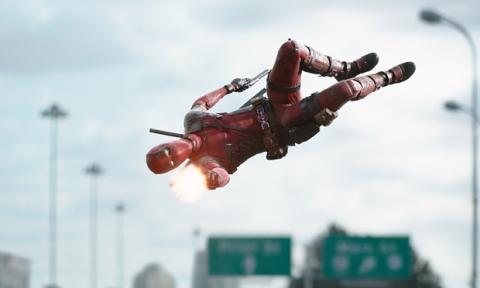Science and superheroes
Altered Humans
Significant physical alterations have seemed largely impossible until very recently. Even breakthroughs in genetics hint at nothing like the weapon-x program that gave Wolverine his admantium bones and Deadpool his accelerated healing. But quantum biology, championed by physicist and broadcaster Jim Al Khalili, suggests an enjoyably speculative direction for extreme human alterations. If quantum tunnelling can explain the high speed transformation of tadpole to frog, surely it’s conceivable quantum effects might also allow a human body to regenerate from a gunshot or samurai sword attack.
Martial arts have been altering humans to pseudo-superheroic levels of power for centuries, with changes more psychological than physical. It seems the US military are at least interested in discovering if the Shaolin monks are skilled in more than just theatre, with a number of research studies underway to militarise ancient Buddhist techniques of mindfulness. Are we producing Jason Bournes and American Ultras in a CIA training facility somewhere? If we aren’t I imagine it’s only because numerous attempts have so far failed.
High Tech Wonders
The speed of technological advancement creates an obvious downside to “high tech” superpowers. Had Lee Majors’s Million Dollar Man been upgraded to the height of early 1970s technology, he would today be the Betamax of superheroes when placed beside, say, a Mark VIII Iron Man suit.
Given our huge industrial base, general robotics might seem a relatively easy challenge to tackle, but has proven much harder than expected. And human/robot interactions of the kind made to look easy in Iron Man are in fact fiendishly hard, at least without the risk of dismembering your pilot. But the news of robotic exoskeletons being used to overcome disabilities shows both that science is already delivering great boons, ad that a full red and gold flying suit of armour might one day be mine … MUAHAHA!
But as anyone who has tried getting through a full day of use on an iPhone 6 will tell you, power supply is the achilles heel of even the coolest gizmos and gadgets. Iron Man’s armour is powered by what appears, from movie schematics, to be a tokamak fusion reactor. We can make these, in fact we’re building one in France. The only problem is it needs to be roughly the size of the Shakespeare’s Globe theatre to produce even a smidgeon more energy than it takes to run.
Robots
Skipping the weak human elements of any high-tech design helps simplify things immensely. But it does raise the minor question, how will a robot think for itself? Artificial Intelligence has been a dream of computer scientists from Alan Turing onwards, and after many decades of negligible to slow progress, 2015 became a watershed year for AI. Google’s “DeepMind” literally taught itself to play Atari Breakout (and 50 other classic video games) in just 120 minutes...I never managed to clear a whole level after year! More recently a DeepMind computing system called AlphaGo beat a champion player of the ancient Chinese game go by five games to nil.
It’s fascinating because nobody, even its creators at Google, really knows how DeepMind plays these games so well. Previous AI champions like IBMs Watson triumphed at single games like Jeopardy after detailed human programming, but DeepMind and other deep learning systems are doing something much more mysterious. Where that might take us is truly hard to know, but for the first time the idea of an emergent AI taking over the internet and igniting a nuclear holocust is a tentative possibility. Sadly, given the rather slower progress on robot bodies, if it wants to manifest physically like The Vision it will have to forego the spray painted body of Paul Bettany in favour of Pepper, the cutting edge of humanoid companion robots.
It seems we’re still a step or two away from scientific super-powers. But here in 2016 they are steps that we are tantalisingly close to taking. And who knows what unforeseen powers technologies like drone swarms or human cloning might lead to. The real question is will they make us superheroes...or villains?
Damien Walter

